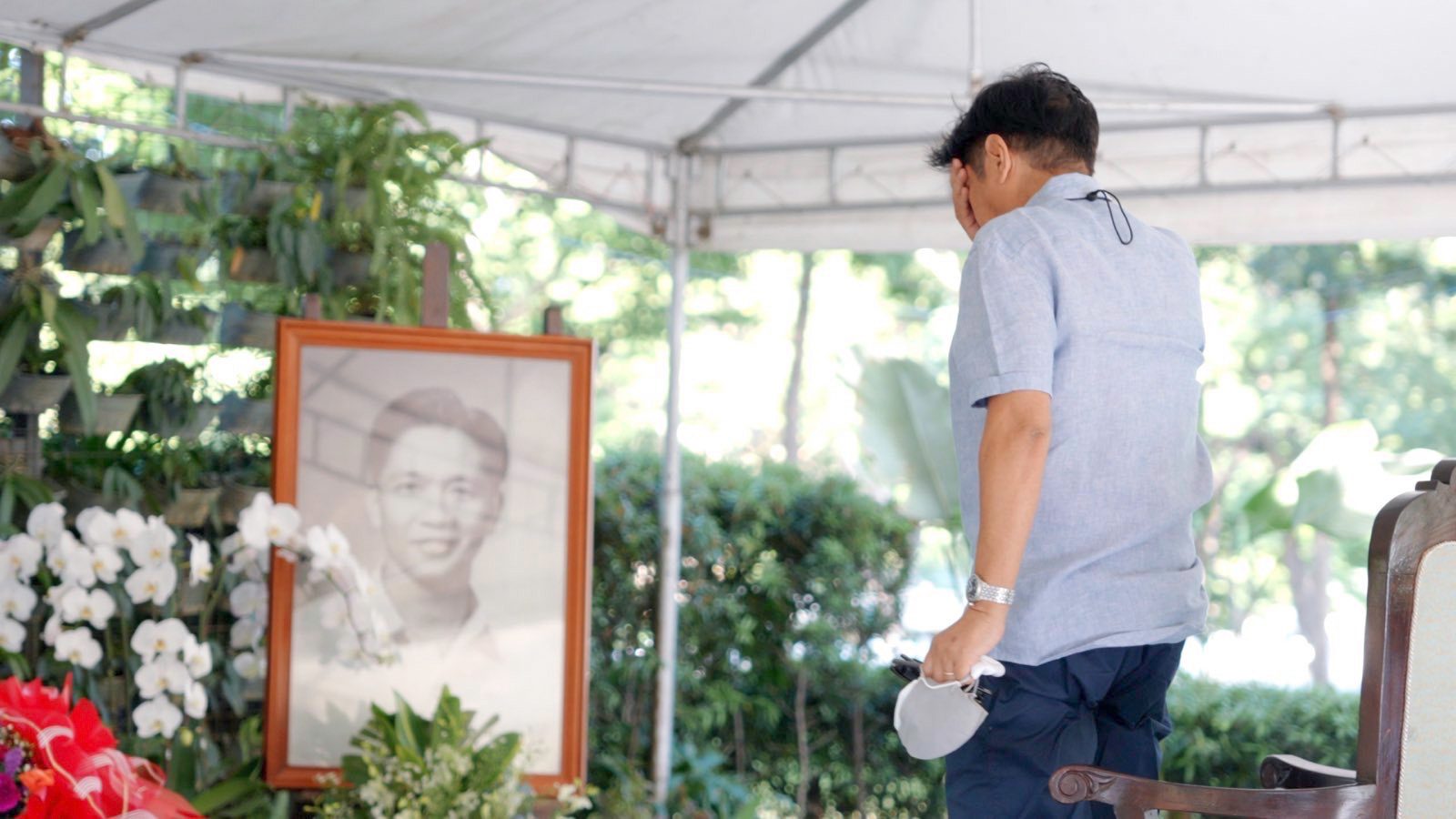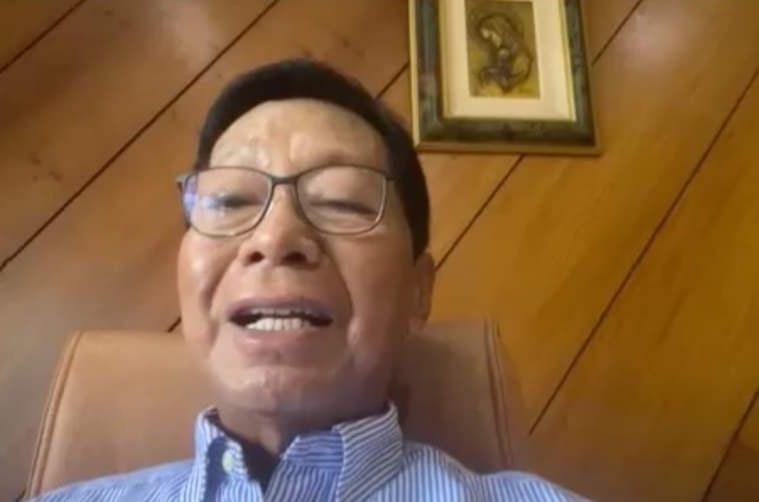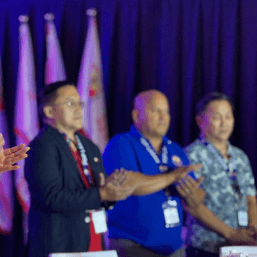SUMMARY
This is AI generated summarization, which may have errors. For context, always refer to the full article.

CAGAYAN DE ORO CITY, Philippines – Their group, the Aquilino “Nene” Pimentel Jr.-founded Partido Demokratiko Pilipino-Lakas ng Bayan (PDP-Laban), fought the Marcos dictatorship in the ’80s.
Today, PDP-Laban old-timers in Cagayan de Oro – the city where it all started – are divided in their views about how the next president, the late dictator’s son and namesake Ferdinand “Bongbong” Marcos Jr., would lead the country in the next six years.
Dr. Manuel Jaudian, acting secretary-general of the PDP-Laban faction led by Senator Aquilino “Koko” Pimentel III, said he was worried about how the incoming administration would deal with the Martial Law historical narratives and facts.
The Pimentel-led group has appealed the decision of the Commission on Elections (Comelec) that recognized the legitimacy of another PDP-Laban faction led by Energy Secretary Alfonso Cusi.
The PDP, which merged with the Laban party of assassinated opposition leader former senator Benigno “Ninoy” Aquino Jr., was founded by the late senator and former Cagayan de Oro mayor Nene Pimentel, to fight the Marcos dictatorship. It became the administration party under President Rodrigo Duterte.
“Under this new administration, will we still celebrate the 1986 EDSA Revolution? Shall we now celebrate the September 21, 1972, Martial Law proclamation rather than remember the atrocities during that period and honor its many victims?” Jaudian asked on Thursday, May 19.
The worst that Marcos Jr. could do, Jaudian said, would be to adopt policies unfriendly to democratic principles such as placing the country under another martial rule.
But another PDP-Laban old-timer in Cagayan de Oro, former vice mayor Antonio Soriano, said he was optimistic that Marcos Jr. would do well, and not repeat the strongman tactics employed by his late father.
“I am 100% sure he won’t do that because that would be like rocking the boat,” said Soriano.

First, he said, that would not sit well with the Dutertes who command a loyal political following.
“Presumably, vice president-elect Sara Duterte is the president-in-waiting. A martial law declaration would be seen as an attempt to rid the country of term limits. The Dutertes will not allow that,” Soriano pointed out.
He said any attempt to impose martial rule would be met with strong resistance, and “he (Marcos Jr.) would be courting trouble with the Dutertes if he does that.”
Second, he said, the Armed Forces of the Philippines (AFP) has been professionalized after the 1986 Edsa Revolt.
“The generals know what can be done and what cannot. Our officers have become professionals unlike during the time of the first Marcos administration. That’s why we have seen and heard (Defense Secretary Delfin) Lorenzana contradict and dare tell the President that this and that cannot be done,” Soriano said.
He also called for a more vibrant opposition that would serve as a watchdog without being “destructive,” and at the same time, “offer clear solutions.”
“Based on the outcome of the elections, people have become fed up with mudslinging. They want clear solutions which they didn’t hear during the campaign period,” Soriano said.
Jaudian said the incoming administration could start well by reaching out and showing that it was serious in its promise of unity rather than suppress the political opposition, and go after its critics.
“The people have spoken. Let us hope that they will now put into action their campaign slogan of unity,” he said.
Jaudian said that if the Marcos administration would allow the market of ideas to flourish, show tolerance for freedom of speech and expression, and respect other fundamental civil liberties, “then we will know that he will not end up exactly like his father.”
The problem, he said, starts with the first sign that Marcos would take the same path that his father took.
Jaudian said there were other concerns that Marcos would need to address such as the fate of the Presidential Commission on Good Government (PCGG) and its years of work to recover his family’s ill-gotten wealth.
He said Marcos cannot just say he would expand the work of the PCGG to run after other officials and then turn a blind eye to his family’s ill-gotten wealth.
“That would be a double standard,” Jaudian said.
“And what about the Supreme Court conviction of his mother (former first lady Imelda Marcos), and their unpaid estate taxes? I expect a new narrative in the coming months as we continue to live in these interesting and amazing times of our republic,” Jaudian said. – Rappler.com
Add a comment
How does this make you feel?












There are no comments yet. Add your comment to start the conversation.